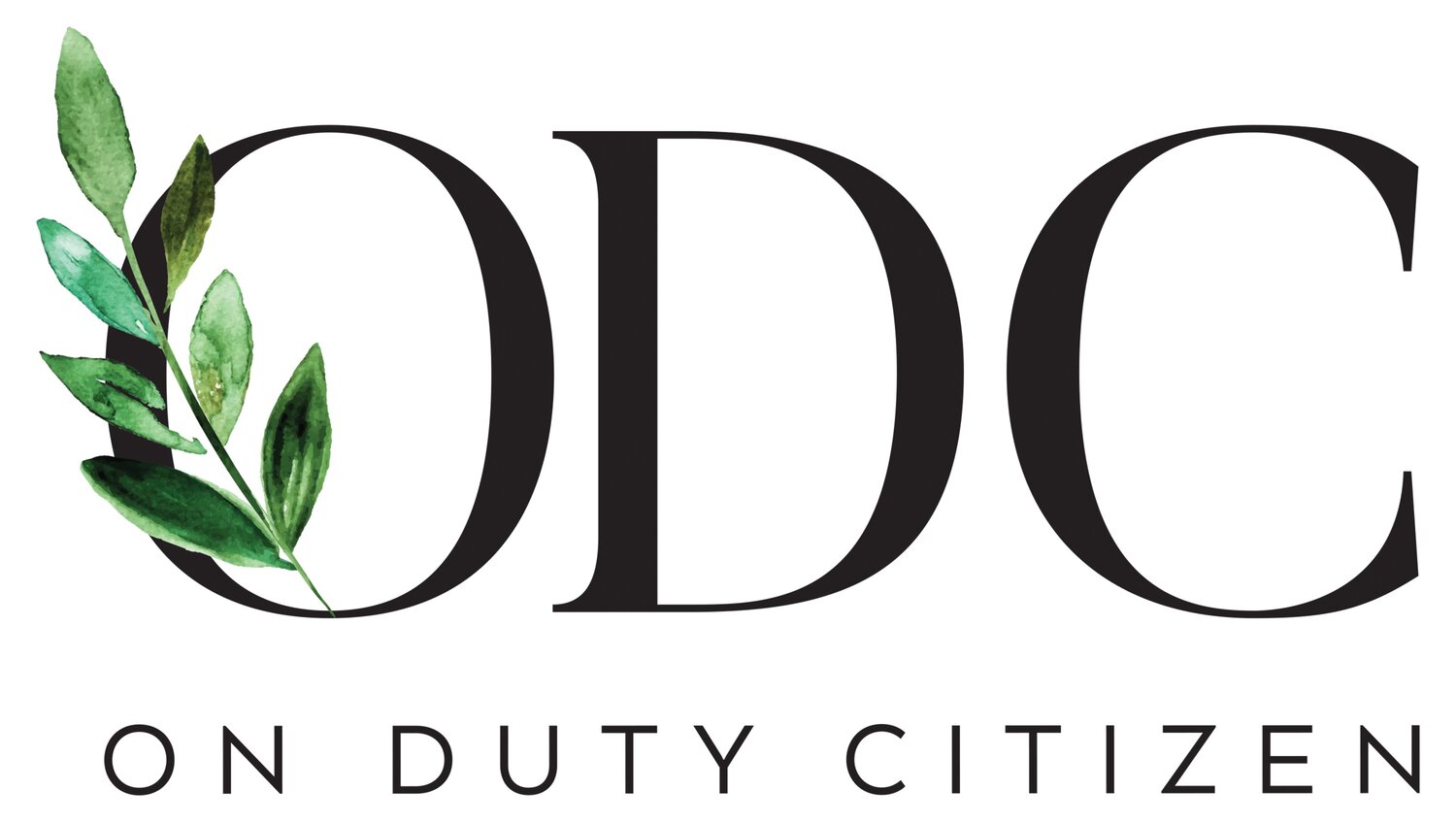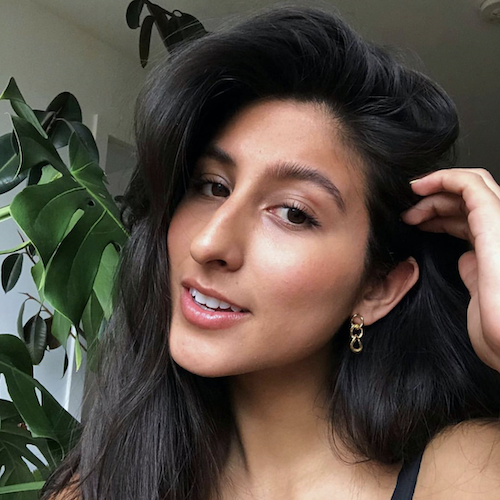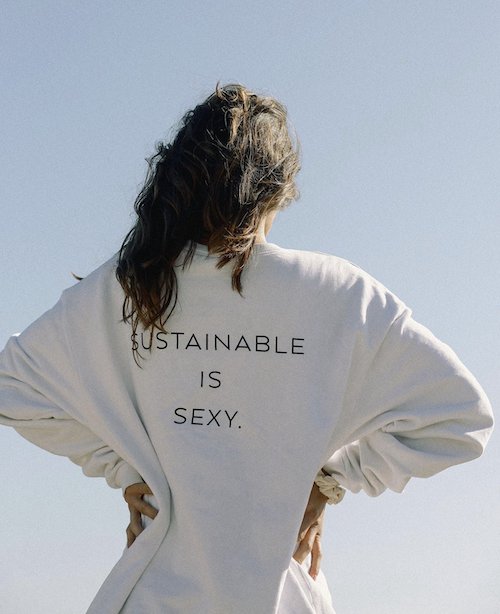ON DUTY CITIZEN
DIANDRA MARIZET
1) What inspired you to get involved in the sustainability movement and what specifically is your involvement in the sustainable/ethical world?
I obviously loved learning about animal conservation as a kid because Steve Irwin was the man. But I really didn’t go on what I could consciously identify as a “sustainable journey” until I moved to New York to work in the fashion industry. New York was a great place to explore intersectional feminism and I was able to extend that learning into garment worker exploitation which sent me down a huge rabbit hole. I started connecting all the problematic dots within the world of capitalism and decided to start dedicated time to researching consumption issues as they pertained to people and the planet.
2) Tell us a bit more about intersectional environmentalism and how you became acquainted with this term. Love the latest download!!
Sustainability trends in the consumption space have largely been led by white voices, despite the fact that many black and brown communities have been practicing sustainability and regenerative agriculture for generations. BIPOC communities even hold eco-practices near and dear as significant parts of their heritage, yet are consistently being overlooked in eco conversations. I wanted to create a resource that would help people understand the importance of diversity in the world of sustainability. So I reached out to Leah Thomas, otherwise known as @greengirlleah. She helped me understand that the best way to frame that way of thinking is to apply intersectionality to environmentalism the same way we do to feminism.
3) I love that you promote the idea that ‘we are not bound to our current perspectives but to the evolution of them.’ What are some shifts in perspective you’ve had recently?
One phrase I have seen circulating the social world lately is that “racism is a white people problem”. Having been sitting with that for the past few weeks, I came to a place where I was able to identify some really important parallels. It’s a morbid example, but in the wake of the #metoo movement, I saw a lot of people sharing content about what women can do to stay safe, cope better, and heal themselves. In contrast, I saw very few men step up to call out and recognize that, while - yes - women do need to heal and stay safe, that sexual abuse is largely a men’s problem. Men have to fix it. Not women. We’re just existing! I hope that anyone who can see where responsibility lies in that context can see that racism truly is a white problem that desperately needs strong allies willing and ready to step up.
4) Bigger picture- What advice do you wish you could tell your young self, as part of what you have learned from your progression through life?
I grew up in a very unpolitical household, so conversations around politics have always been intimidating to me. Today, after years of listening to people speak on behalf of BIPOC communities, I see so clearly that people who understand political jargon still consistently miss the mark. You can get an A+ all day for knowing your political ABC’s, but you don’t need that to know your community is drinking poisoned water. You don’t need to be able to rattle off senators to be able to mobilize and demand justice. BIPOC experiences are enough of an education to kick start anyone’s relationship with social justice.
5) Favorite sustainable and/or ethical fashion companies you love to wear? I also see you identify as part of the Latinx community. Do you have any favorite Latinx-owned companies you love to support as well?
My number one option is always to thrift, but I do love supporting sustainable brands that are paving a better way for the future of business. I keep a log of all my favorite brands on my platform that I reference if I feel like splurging once in a while.
My favorite Latinx owned brand is Yay For Earth body lotion. In my best attempts to break up with excess products, I’ve only been using this lotion on my face on a daily basis during quarantine, and my skin has never been better. Now I only use other products when my skin is visibly communicating to me that it needs something else. You’d be shocked how reliant your skin becomes on products when it’s used to leaning on so many supplemental products! Now my skin is learning to do its own thing and I love it.
6) What are some of the ways in which you think we can make the sustainable/environmental movement more inclusive?
Learning to actionably embrace each other's stories and backgrounds is going to help us as an entire sustainable community build a better world for everyone. A great way people can contribute to this is to always make sure they are clearly sharing the “call to actions” or “asks” that should go along with the new information they are learning. A (small but) great example in the outdoor space is recognizing that one of the many reasons communities of color have strained relationships with nature is because park rangers have historically had uniforms that look an awful lot like police force. But why though? ¯\_(ツ)_/¯In this instance, someone made the connection that communities of color are (rightfully so) fearful of policemen and the “ask” here is that park ranger uniforms be more inviting, because nature is for everyone, and no one should be scared to ask where the hiking trail starts.
7) What are some of your resources you use to learn more about sustainability? Favorite websites, journalists, organizations or Instagram accounts..
I’m really excited to be creating @intersectionalenvironmentalist alongside some of my favorite sustainable and eco advocates. I’m learning so much along the process already from everyone’s different perspectives and we’re pumped to be sharing so many great resources with our community. Additionally, I love following @futureearth for all things eco and @rachelcargle for some much needed unlearning.
8) What advice do you have for someone who would like to live more sustainably? Big, small picture (or both!)
Transform your social feeds! Nothing makes sustainable living harder than aspiring to be like people who are clearly hella wasteful with all their shopping hauls and 20 step skincare routines. Find your tribe online and I guarantee that a low waste lifestyle will come so much easier. Not to mention all the eco friends you’ll make along the way.
9) How do you get over imposter syndrome so seamlessly? The feeling that ‘I don’t have a degree in this topic so I can’t speak on it…’ Something I personally struggle with…
I defer back to my answer to Q4. If people running the show had all the answers after getting their fancy degrees, the world would be fixed. The truth is, knowledge is simply not enough. Someone with half the education can get so much farther than a highly educated person who does not care about social impact.
Follow Diandra along to learn more!
Instagram, Twitter , The IE Download with Leah Thomas




